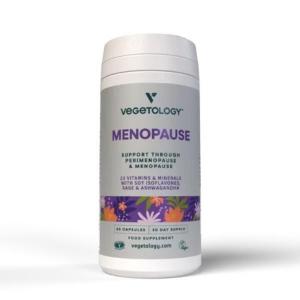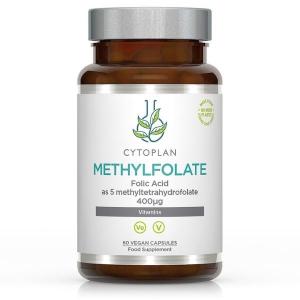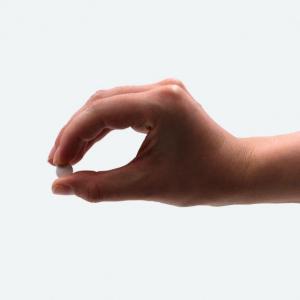
What is PCOS and Why You Should Know the Main Symptoms

What is Polycystic Ovary Syndrome and Why Should We Care
When someone mentions Polycystic Ovary Syndrome, to many, it might sound like a complex medical term that doesn't concern them. But the reality is that PCOS – as this condition is abbreviated – affects approximately one in ten women of reproductive age. Many of them don't even know what's happening in their bodies. Questions like "PCOS, what is it?" or "What exactly is PCOS?" appear more frequently than we might think. And the answers are not always straightforward.
Polycystic Ovary Syndrome is not just a problem of the ovaries. It is a complex hormonal disorder that can affect the entire body – from irregular menstrual cycles to skin issues and difficulties with conception. Despite its relatively high prevalence, PCOS often remains unrecognized or misunderstood. One reason is that its manifestations are highly individual and can be mistaken for other issues.
How to Recognize PCOS? It's Not Just About Cysts
The name of the syndrome might lead one to believe that the main problem is the cysts on the ovaries. But PCOS is not just about 'polycystic' ovaries, as it might seem. In fact, women with this syndrome may not have cysts at all, and conversely – many women who do have cysts do not suffer from PCOS.
Diagnosis is made based on the so-called Rotterdam criteria, which include three main signs: irregular or absent menstruation, signs of elevated male hormone levels (such as excessive hair growth or acne), and an ultrasound finding of polycystic ovaries. Two out of the three conditions are sufficient to confirm the diagnosis.
In other words, if someone asks "PCOS – what is it?", it's not possible to answer in one sentence. It is a condition with many layers, which can manifest differently in each woman.
Living with PCOS - More Than Just Physical Symptoms
One of the biggest challenges women with PCOS face is infertility. Due to irregular ovulation or its complete absence, getting pregnant is often complicated. But the impacts of PCOS are not just physical. Many women also describe psychological difficulties, such as anxiety, depression, or low self-esteem – often as a result of the changes in appearance that PCOS causes (e.g., excessive hair growth, acne, or weight gain).
An example is the story of Klára, who struggled with PCOS since her twenties. "At first, I thought I was just too stressed because my period was missing. Then acne appeared, I gained ten kilos in a few months and noticed dark hairs on my chin. My doctor referred me to an endocrinologist, and that's when I first heard about PCOS. I didn't understand what it meant. But soon I realized it affects almost every part of my life."
What's most crucial here? That Klára is not an exception. A similar story could be told by every tenth woman.
What Causes PCOS? Science is Still Uncertain
Although PCOS is among the most common hormonal disorders in women, its exact cause is still unknown. Experts agree that a combination of genetic and environmental factors plays a role. If a mother or sister had PCOS, there is a higher likelihood that it will develop in other family members.
One theory is that women with PCOS have increased insulin resistance, which means their body reacts poorly to insulin – a hormone that regulates blood sugar levels. This can lead not only to increased insulin production but also male hormones (androgens), which subsequently disrupt ovulation. Many women with PCOS also have an increased risk of developing type 2 diabetes, high blood pressure, and cardiovascular diseases.
Treatment is Not Universal – It Depends on the Goal
So what can a woman with PCOS do? There is no simple "cure," as PCOS is a chronic condition. Treatment therefore focuses on alleviating symptoms and preventing long-term complications. A crucial factor is lifestyle.
Healthy eating, regular exercise, and stress reduction can significantly improve not only hormonal balance but also psychological well-being. Studies show that even a 5–10% weight loss can lead to the restoration of regular menstrual cycles and improved insulin sensitivity.
In some cases, doctors recommend hormonal contraception to regulate the cycle and reduce androgen levels. If a woman desires a child, ovulation-inducing drugs or assisted reproduction come into play.
An interesting direction is also the use of natural dietary supplements, such as inositol or vitamin D, which some studies suggest can contribute to better hormonal balance. However, it's essential to always consult their use with a specialist.
Try our natural products
Sustainable Approach to Treatment and Life
Women with PCOS often seek alternatives to conventional treatment and turn to more natural methods. It's no wonder – if the whole body is out of balance, it makes sense to look at lifestyle as a whole. And this is where an ecological and sustainable approach to health can play a role.
Choosing foods from organic farming without synthetic pesticides, natural cosmetics without hormonally active substances, or clothing made from organic cotton may sound like minor details, but together they create an environment that is less harmful to the body. Women who ask "what is PCOS and how to live with it" often move towards a holistic approach: not just addressing symptoms, but supporting the body as a whole.
As with other chronic conditions, awareness plays a significant role in PCOS. The more a woman knows about her body, the better she can respond to its signals. In recent years, there has been increasing interest in sharing personal experiences, with support groups, blogs, and podcasts emerging where women openly talk about their struggle with this syndrome.
As American endocrinologist Andrea Dunaif says: "PCOS is not a disease of one part of the body. It is a condition that affects the whole person – physically, psychologically, and socially." And that's why it deserves our attention.
Whether someone is looking for answers to questions like "PCOS – what exactly is this diagnosis?" or is already dealing with this syndrome, the key to a better life is understanding, patience, and the willingness to find what works for the individual. Every woman is different – and so should be the care for her health.







